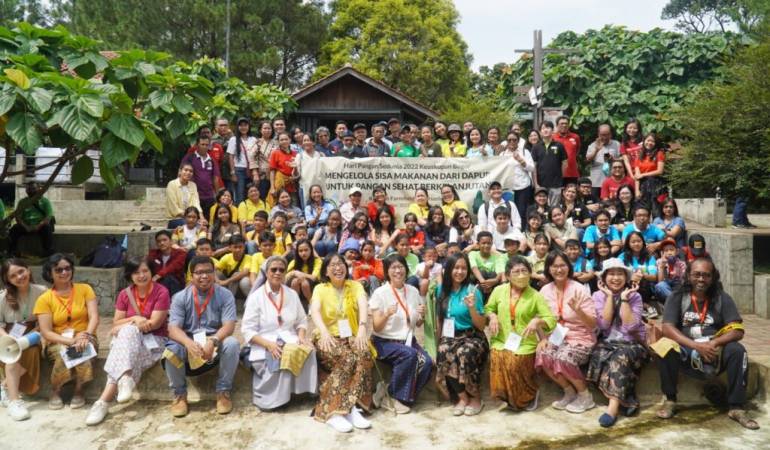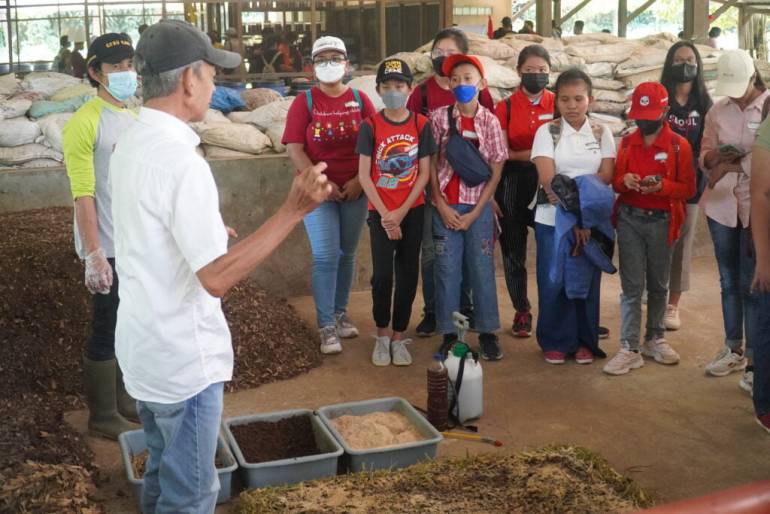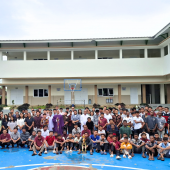Bogor Diocese holds exhibitions on waste management in Indonesia

The Ecology Commission of the Diocese of Bogor in Indonesia held a series of educational shows about how to deal with food waste on October 22.
The theme was "Managing Food Leftovers from the Kitchen for Sustainable Healthy Food."
In this environmental education program, teens, adults, and children from every parish in the diocese took part.
Father Yosef Irianto Segu, chairman of the Ecology Commission of the Diocese of Bogor, urged the audience to consider the need to minimize food waste to ensure the availability of healthy food.
"I hope that people learn useful knowledge and become more aware of food preparation utilizing modern technologies," he said.
According to Father Irianto, after learning about food preparation methods, participants will be able to do so more efficiently by employing a variety of food preparation methods, including food waste and uneaten leftover food leftover food
"Today's action is to increase our love and care for mother earth, our shared home," the priest stated.
Elizabeth L. Tedjojuwono, chair of the organizing committee, said that the goal of the initiative is to help people get more out of learning about food waste management.
To maintain the earth's sustainability, waste management must be implemented, said Tedjojuwono, adding that the display on food waste processing processes is presented for educational purposes.
"It is hoped that attendees will learn about the different ways to deal with food waste and be inspired to start a movement to deal with food waste responsibly," she said.
Tedjojuwono said that the "exhibition Loving the Environment," as the event was called, showed different ways to deal with trash.
She said that the larvae of the Black Soldier Fly (BSF) are used in the process of composting. In feces, BSF larvae can destroy a variety of organic substances.
"Extracting energy and minerals from food waste to be used as food ingredients," she said.

The organizer of the event said, "Compost is the end result of organic waste being broken down by BSF larvae in the form of BSF larvae," adding that high levels of protein and BSF nutrients can be utilized as a snack.
"From the table to compost and fertilizer for the garden, and eventually to healthy food," is the title of an exhibition on the procedure of sorting domestic garbage. Individuals are required to recognize and comprehend the composting process in this strategy.
Participants can directly observe agricultural land, from planting and upkeep until harvesting. "
Tedjojuwono said that the overall goal of the series of activities is to teach people, especially those who live in Bogor, more about how to deal with food waste and how it affects the environment, as well as how easy it is to get healthy food.
“To raise awareness about the importance of living a zero-waste lifestyle to protect the health of the ecosystem,” she explained.
As a result of this project, it is hoped that the faithful in Bogor Diocese will become a leader in environmental health care for all people, especially those who cannot live a zero-waste life.
She concluded, "By loving the world and all of God's natural creations, by living a healthy lifestyle and being nice to the environment every day, which may begin with each family.”
The Bogor Diocese is in the province of West Java, about 56 kilometers from Jakarta, which is the capital of Indonesia. It encompasses 18,369 square kilometers.
The diocese comprises roughly 90,000 Catholics in 23 parishes, who are served by 90 priests. On January 3, 1961, the diocese came into existence. - Kasmir Nema.
Radio Veritas Asia (RVA), a media platform of the Catholic Church, aims to share Christ. RVA started in 1969 as a continental Catholic radio station to serve Asian countries in their respective local language, thus earning the tag “the Voice of Asian Christianity.” Responding to the emerging context, RVA embraced media platforms to connect with the global Asian audience via its 21 language websites and various social media platforms.














